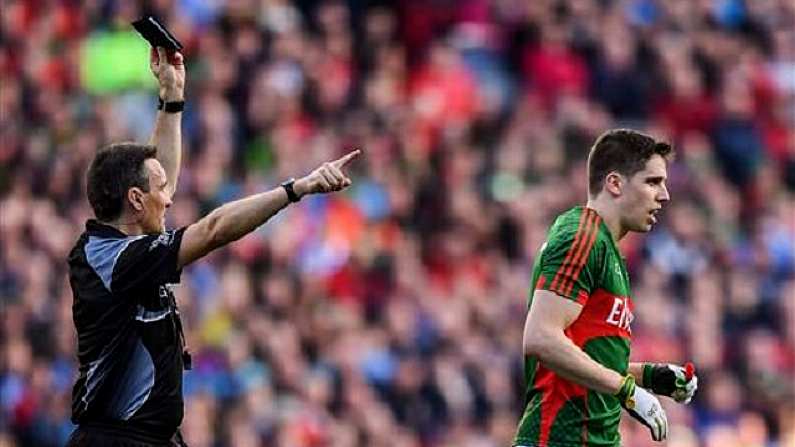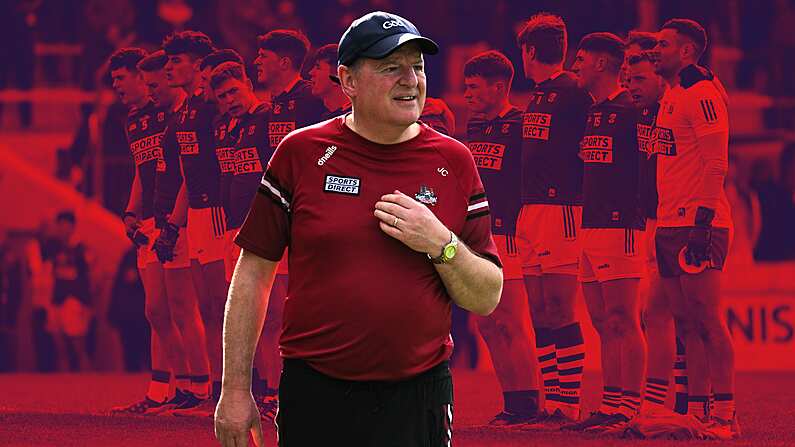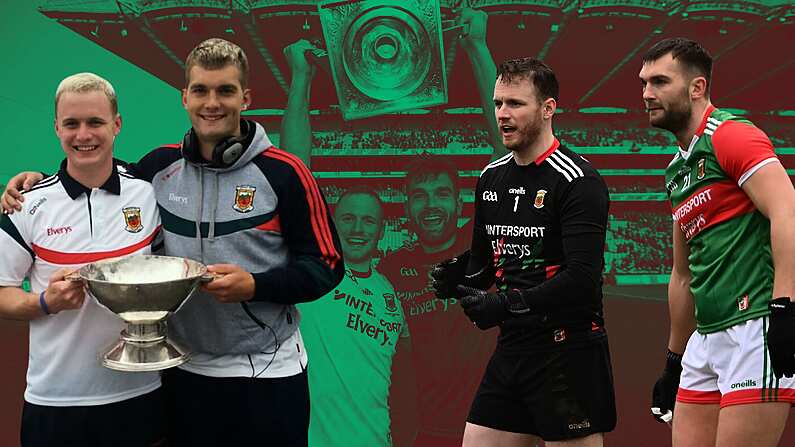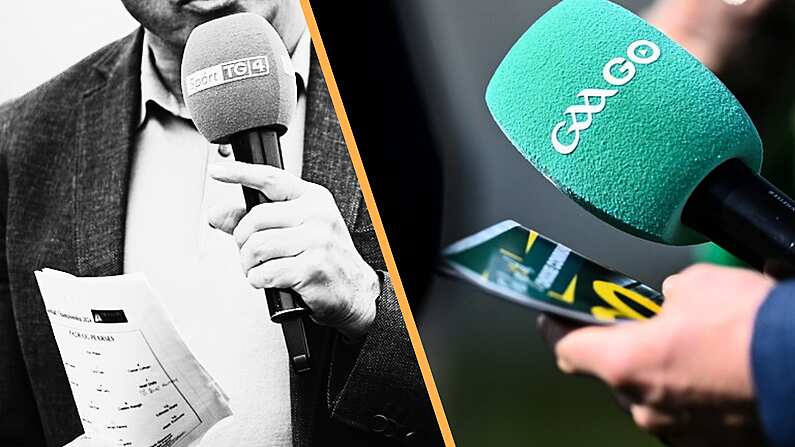Since its introduction in 2013, Gaelic football's black card has been the problem child of the GAA.
It has, to the GAA's credit, reduced cynical play within the sport, but its implementation by referees and their perceived lack of understanding of the rule has seen the term 'consistency' enter parodical territory on a weekly basis - not least after a host of controversial incidents in this year's two All-Ireland football finals.
GAA president Aogán Ó Fearghaíl has indicated that not only is the rule here to stay for four years at least, but it won't be altered in any way - except via officials improving their own knowledge of black card-worthy challenges and applying it more effectively than previously seen.
Speaking to The Independent, Ó Feargháil said:
With regards to the abolition of the black card - no; 2020 is the next Congress that we have when we change playing rules.
In some quarters there's a backlash against it but you get that in everything in the GAA. The black card is there and a part of our rules, and I don't see it being dispensed of because of one or two incidents, or even more incidents.
He did however tell the Independent's Tom Rooney that he understood criticism of the rule, or at least its implementation by referees:
There is an onus on us to make sure that whatever rules we have are well implemented. I accept that some of the commentary with the black card is fair, and that we have to make sure that it is properly implemented. There have been some calls that were a little dubious, and we need to improve that.
We have to improve how we use the black card, and the Referees' Association have admitted that themselves and they are improving their education around the black card.
Ó Fearghail claimed that more scores and fewer fouls are further proof that there is a place for the black card in the game, but also rejected the notion that a TMO system would benefit the game.
You can read the full interview on Independent.ie.













